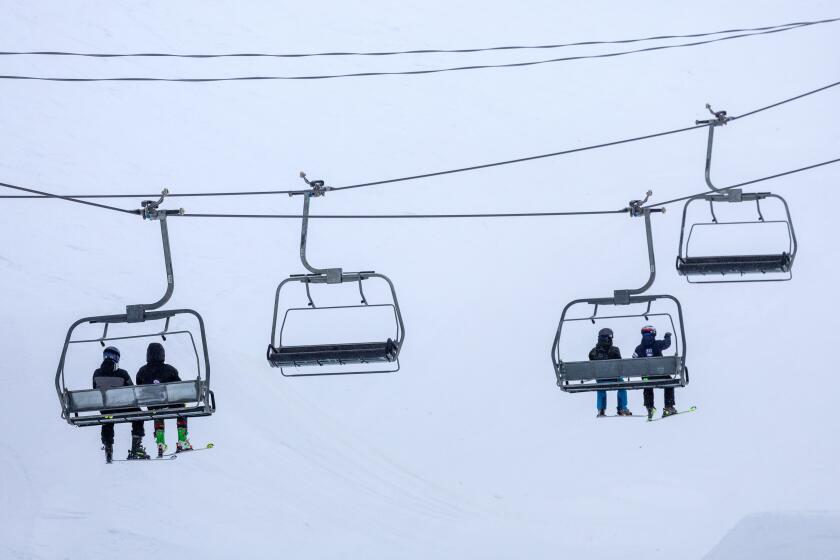State Delays Evictions of 10 Patients : Health care: Agency rules that county did not give those at Rancho Los Amigos nursing home enough time to be placed in other facilities.
- Share via
Los Angeles County ignored patients’ rights and failed to give proper notice in its effort to hastily evict 10 comatose and semi-comatose patients from its Rancho Los Amigos Medical Center skilled nursing facility, a state regulator ruled Thursday.
The ruling prevents the county from evicting the patients from the Downey facility until it has fully complied with federal regulations covering the transfer of patients. The county had planned to close the facility Sunday as part of a sweeping budget reduction plan.
Although the ruling represented a victory for family members of the patients, that victory might be short-lived.
Consuelo Diaz, Rancho Los Amigos’ chief administrative officer, said the effect of the ruling was to push back the county’s deadline for closing the nursing unit to Oct 31.
Even so, Elena H. Ackel, a Legal Aid attorney who represented the families in their appeal of the county’s order to close the nursing facility, said she was “ecstatic” with the ruling.
“We have at least 30 more days,” she said, “but more importantly, it gives us some breathing room.”
The ruling by the administrative appeals unit of the state Department of Health Services found that the county was “substantially not in compliance” with federal regulations, and bars Rancho Los Amigos administrators from evicting the patients until they have fully complied with the regulations.
Joseph Conkle, the hearing officer, said the state would continue to monitor the transfer of patients “to provide a safe and orderly transfer process, thus minimizing the substantial potential for serious harm to these residents.”
Conkle said the county “did not take necessary steps” to ensure that patients had 30 days notice that the facility would close. He also said the county did not do a proper job of laying the legally required groundwork to transfer the patients, such as finding an adequate replacement facility.
Although the county handed out lists of nursing homes to the families of patients, Conkle said federal guidelines made it the county’s obligation to find “an appropriate placement facility.”
During a daylong hearing Monday, county officials told state regulators that they did not decide until Aug. 25 to close the skilled nursing unit. The move was designed to save the county $1.2 million a year, according to Diaz, and was part of a budget reduction plan ordered by the county Board of Supervisors. The supervisors plan to privatize the hospital within three years.
The notices that the nursing unit would be closed were to go out on Aug. 29, but several were not postmarked until Sept. 1, and one patient’s family did not receive theirs until Sept. 13.
The time frame “was simply insufficient to allow a limited staff, whose primary responsibility was providing continuing health care for residents, to devote sufficient time and resources to engage in adequate placement activities” for the patients, Conkle said.
“We’re delighted with the decision,” said Francisco Rodriguez, head of a group of family members who joined together to fight the budget move by the county. “But we’ve only won a skirmish. The war continues.”
Many of the patients involved are on life-support systems and all require 24-hour nursing care. There are 17 patients in the skilled nursing unit, 10 of whom were represented in the legal appeal.
One of the problems the families face is finding another skilled nursing unit that will accept Medi-Cal patients for what is expensive long-term care.
In another development, a watchdog group disclosed that one of the nursing home’s administrators had recommended transferring several of the patients into Bay Harbor Rehabilitation Center in Torrance, which was cited for 86 deficiencies this year by county nursing home inspectors.
Bay Harbor also had one major citation, according to San Francisco-based California Advocates for Nursing Home Reform, a nonprofit group that annually publishes report cards on California nursing homes.
David Seubert, a spokesman for the advocacy group, said the number of deficiencies against Bay Harbor was much higher than average. He said they ranged from violations of patients’ rights to problems with the quality of health care. By contrast, he said Rancho Los Amigos had four deficiencies, which he described as “very good.”
Harry McNamara, the top administrator at Bay Harbor, confirmed the deficiencies, but argued that at least half were unwarranted.
More to Read
Sign up for Essential California
The most important California stories and recommendations in your inbox every morning.
You may occasionally receive promotional content from the Los Angeles Times.










